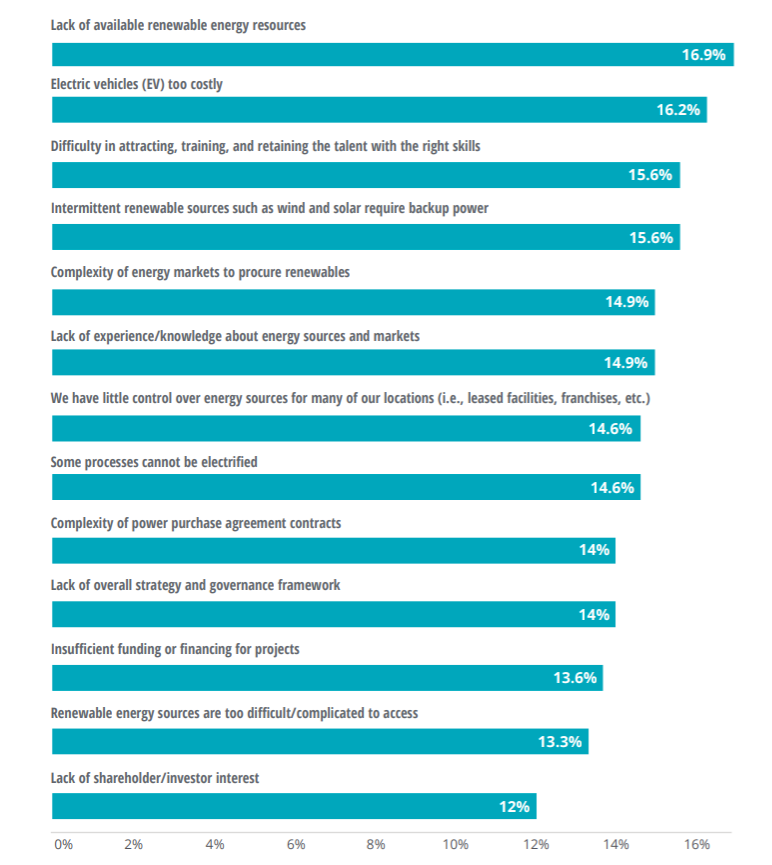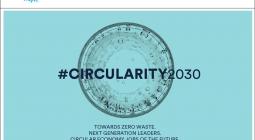Hospital electrification will lead corporate renewable procurement in next 5 years: Deloitte

Dive Brief:
- The healthcare and medical group sector will make up most of the planned corporate renewable deals in 2020-25, according to Deloitte Transactions and Business Analytics.
- The energy-intensive healthcare industry is focused on near-term changes to electrify their energy needs, save money and reduce carbon emissions,according to the Deloitte study released on Wednesday. Hospitals use three to five times as much energy as a five-star hotel when it comes to heating, ventilation and air conditioning (HVAC), according to Deloitte's lead on U.S. and global renewable energy, Marlene Motyka.
- The transition will be difficult as survey takers identified hospitals with plans to retrofit the water and space heating systems. Electrified space heating retrofits can be particularly prohibitive, while electric water heaters have become cheaper in recent years, Motyka told Utility Dive. Overall, it's easier to electrify systems on a new build and 33% of healthcare and medical groups participating in the survey identified the costs of retrofitting as a challenge with that conversion, she said.
Dive Insight:
The Deloitte survey shows more corporations are demanding renewable energy, but power purchase complexities are holding some companies back from deploying more clean resources.
Those difficulties present an opportunity for utilities to steward the transition of their large customers, Motyka said.
"A utility has the opportunity to step in and really be a resource provider ... an ally to bring different parties together," she said.
The top 10 concerns across industries surveyed include a lack of understanding complex energy markets and power purchase agreements (PPAs).
The accounting and tax implications of PPAs can be intimidating to a business, according to Motyka.
Key challenges to the renewable energy transition

Credit: Deloitte Renewable Energy Transition Survey
Despite the challenges, "there are increasing options" for corporations to purchase energy, Motyka said. "Many more are going out and directly signing contracts with renewable projects."
The Deloitte survey shows utilities how to provide opportunities around green rates and green tariffs, she said. To date, utility regulators have approved 23 green tariffs in 17 states.
The report points to current examples of utilities supporting the 100% renewable transition for corporations:
- Providing renewable energy and adopting carbon-free commitments or committing to stop using fossil fuel-burning resources.
- Enabling new services from behind-the-meter devices, such as Great River Energy's network of electric water heaters that charge at night with wind power.
- Enabling performance, such as a Tennessee Valley Authority's $2,000 incentive for each internal-combustion engine forklift that customers replaced with electric models.
- Utilities handling the transfer of renewables in "sleeved PPAs," delivering renewable energy from the project to the corporate buyer for a fee.
In addition to lowering carbon footprint and emissions, renewable resources have reached such low prices that the transition can be profitable for a variety of industries. This is particularly true for the healthcare sector — 61% of the industry reported specific goals to transition to renewable energy from all other respondent groups in the Deloitte survey.
Healthcare/medical industry groups, manufacturing and consumer products and services "had the highest concentrations of renewable goals targeted for the period 2020–25."
In 2016, Kaiser Permanente, a leading health care provider, committed to buying clean energy and carbon offsets to become carbon net positive by 2025.
"Healthcare/medical groups have the strongest goals [in terms of] right here and very soon," Motyka said. "When you think about this service that they provide, they are so critical to the community that... it's so important for them to be resilient, and so that came through when we were looking at them in terms of renewables and energy management."
One of their largest expenses is electricity. 87% of healthcare and medical group respondents have plans to retrofit and upgrade their infrastructure to electrify their space and water heating. 82% of respondents in the technology and telecommunications sector reported similar plans.
While retrofits are more difficult, they are necessary if new hospitals aren't being built. Motyka considers this a cost and funding challenge.
3 October 2019
UTILITY DIVE




